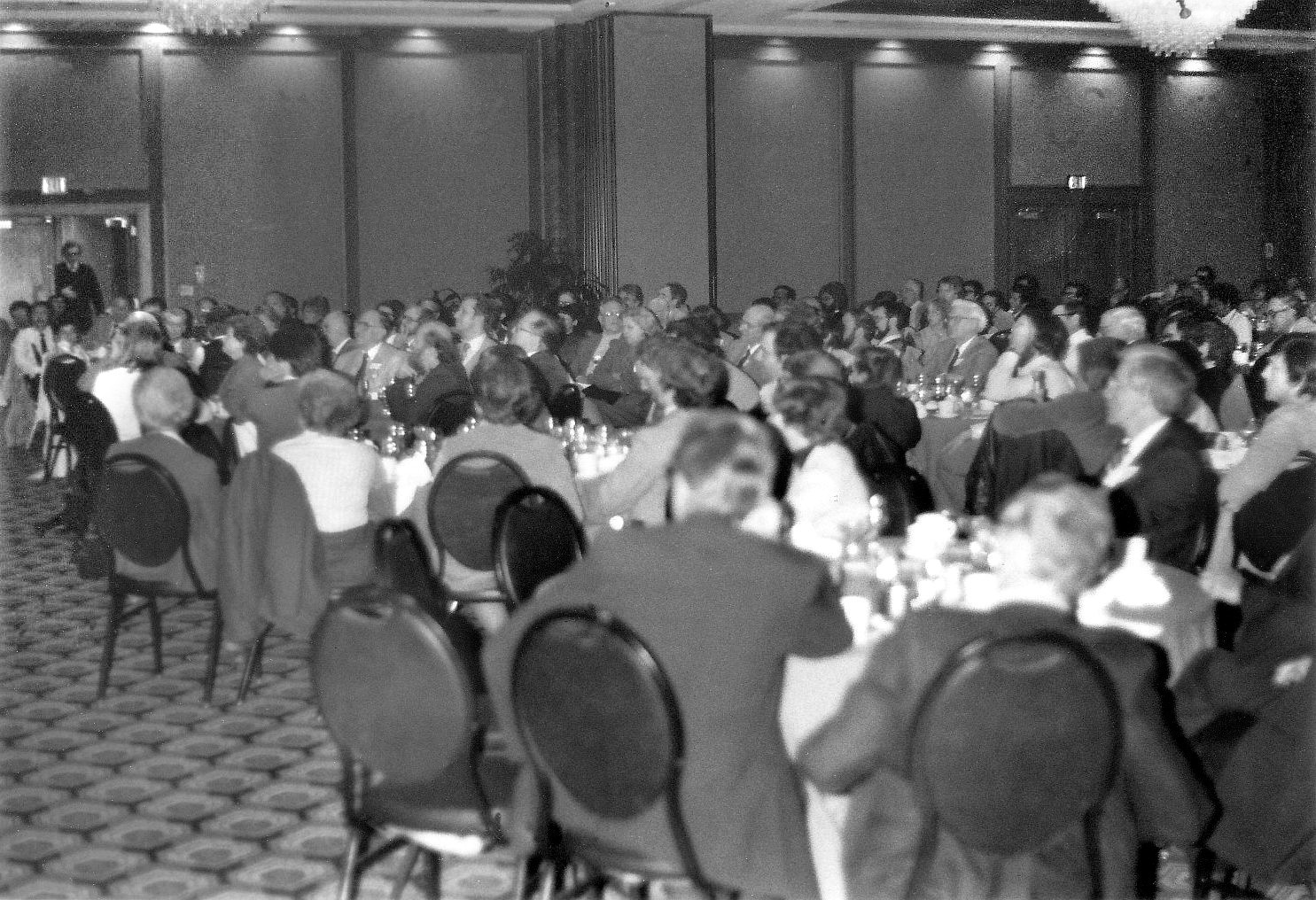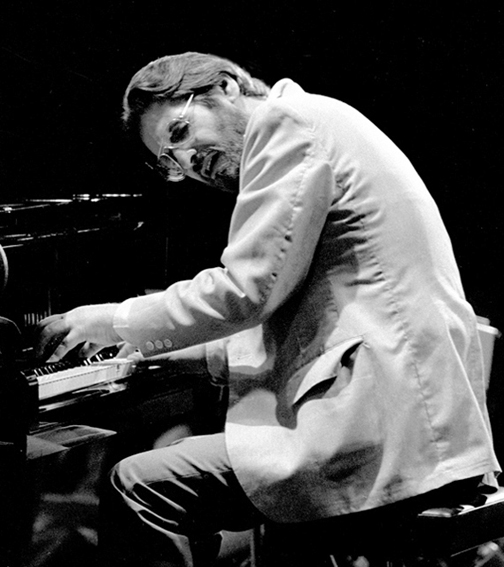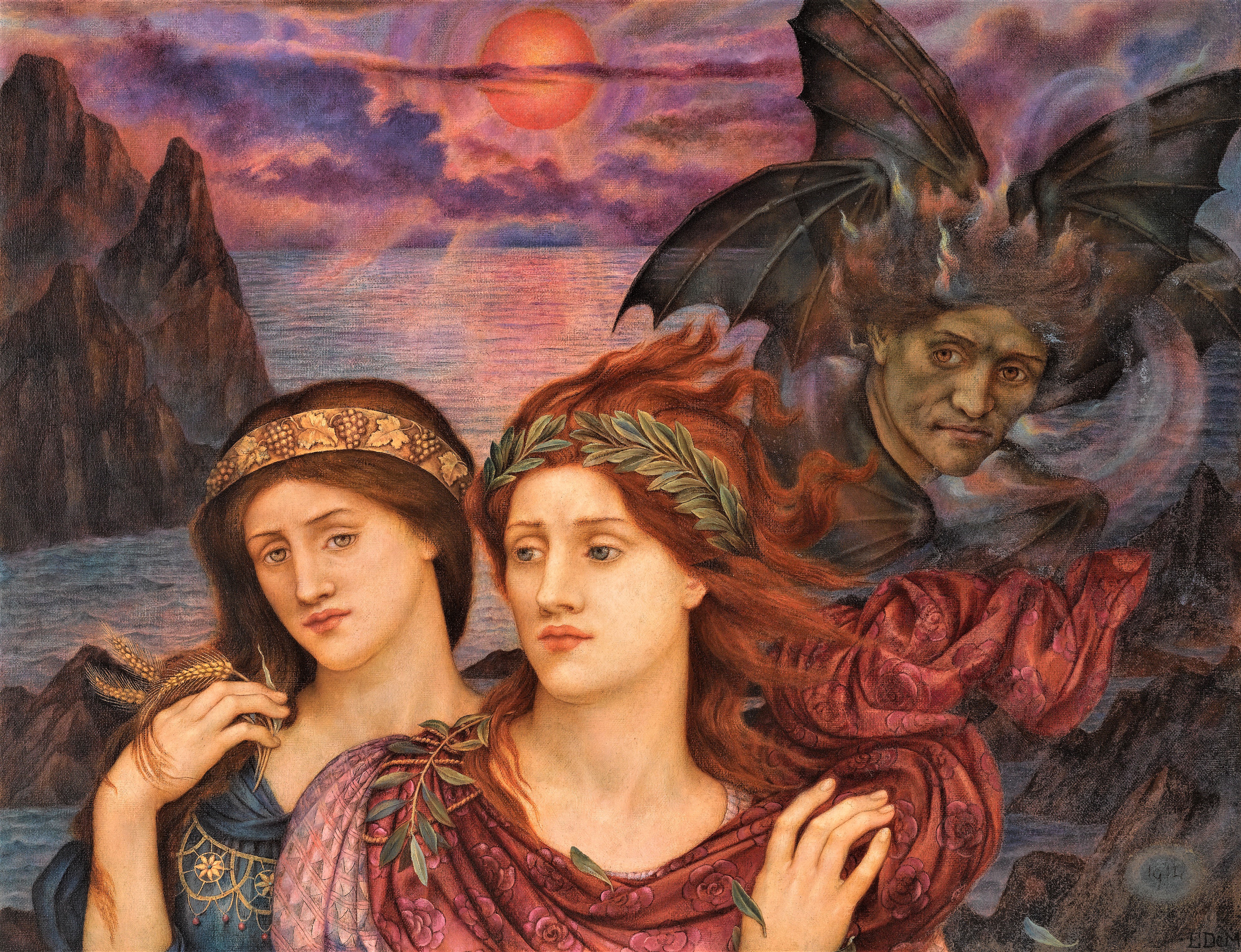|
Charles M. Fair
Charles Maitland Fair (September 18, 1916 – July 28, 2014) was an American neuroscience researcher and writer. Early life and education Fair was born in New York City. His mother was the stage actress Gertrude Bryan. He attended the Buckley School, Fay School, and St. Paul's. Fair attended Yale University but was asked to leave before graduating. Career Fair began to study the nervous system in the late 1950s out of his conviction that psychiatric theories of the self had failed. In spite of his lack of a college degree, Fair distinguished himself as an independent scholar by holding several prestigious positions and writing three books on neuroscience. He was a Guggenheim Fellow at UCLA's Brain Research Institute and worked as a scientist for MIT's Neuroscience Research Program and Massachusetts General Hospital. Fair published several technical papers and contributed to the academic journals ''Science'' and ''Nature''. Writing Fair wrote poetry, literary commen ... [...More Info...] [...Related Items...] OR: [Wikipedia] [Google] [Baidu] |
Gertrude Bryan
Gertrude Bryan (July 22, 1888 – May 24, 1976) was an American stage actress who appeared on Broadway in the early 20th century. Early life Gertrude Modora Bryan was born in Chicago the daughter of entertainers. Bryan's father, Frank, a comedian known as ''Senator Bryan'' in ''The Military Man'', later toured in a vaudeville act called “Human Flags” by Frank D. Bryan's Peace Congress of American Girls. Her mother, Nellie, was a singer in Gilbert & Sullivan operas. Bryan attended the Friends Seminary, a Quaker school, in Manhattan (New York). Stage actress Bryan appeared in ''Little Boy Blue'' at the Lyric Theatre (New York) in November 1911. This was a romantic operetta which had played Europe in the two previous theatrical seasons. The musical was produced by Colonel Savage. Its title in Europe had been ''Lord Piccolo''. The American title had no connection to the popular nursery rhyme of the same name. Bryan played the title role. The plot is about a Scottish Ea ... [...More Info...] [...Related Items...] OR: [Wikipedia] [Google] [Baidu] |
Committee For Skeptical Inquiry
The Committee for Skeptical Inquiry (CSI), formerly known as the Committee for the Scientific Investigation of Claims of the Paranormal (CSICOP), is a program within the US non-profit organization Center for Inquiry (CFI), which seeks to "promote scientific inquiry, critical investigation, and the use of reason in examining controversial and extraordinary claims." Paul Kurtz proposed the establishment of CSICOP in 1976 as an independent non-profit organization (before merging with CFI as one of its programs in 2015), to counter what he regarded as an uncritical acceptance of, and support for, paranormal claims by both the media and society in general. Its philosophical position is one of scientific skepticism. CSI's fellows have included notable scientists, Nobel laureates, philosophers, psychologists, educators and authors. It is headquartered in Amherst, New York. History The committee was officially launched on April 30, 1976, and was co-chaired by Paul Kurtz and Marcell ... [...More Info...] [...Related Items...] OR: [Wikipedia] [Google] [Baidu] |
American Neuroscientists
American(s) may refer to: * American, something of, from, or related to the United States of America, commonly known as the "United States" or "America" ** Americans, citizens and nationals of the United States of America ** American ancestry, people who self-identify their ancestry as "American" ** American English, the set of varieties of the English language native to the United States ** Native Americans in the United States, indigenous peoples of the United States * American, something of, from, or related to the Americas, also known as "America" ** Indigenous peoples of the Americas * American (word), for analysis and history of the meanings in various contexts Organizations * American Airlines, U.S.-based airline headquartered in Fort Worth, Texas * American Athletic Conference, an American college athletic conference * American Recordings (record label), a record label previously known as Def American * American University, in Washington, D.C. Sports teams Soccer * B ... [...More Info...] [...Related Items...] OR: [Wikipedia] [Google] [Baidu] |
2014 Deaths
This is a list of deaths of notable people, organised by year. New deaths articles are added to their respective month (e.g., Deaths in ) and then linked here. 2022 2021 2020 2019 2018 2017 2016 2015 2014 2013 2012 2011 2010 2009 2008 2007 2006 2005 2004 2003 2002 2001 2000 1999 1998 1997 1996 1995 1994 1993 1992 1991 1990 1989 1988 1987 See also * Lists of deaths by day The following pages, corresponding to the Gregorian calendar, list the historical events, births, deaths, and holidays and observances of the specified day of the year: Footnotes See also * Leap year * List of calendars * List of non-standard ... * Deaths by year {{DEFAULTSORT:deaths by year ... [...More Info...] [...Related Items...] OR: [Wikipedia] [Google] [Baidu] |
1916 Births
Events Below, the events of the First World War have the "WWI" prefix. January * January 1 – The British Empire, British Royal Army Medical Corps carries out the first successful blood transfusion, using blood that had been stored and cooled. * January 9 – WWI: Gallipoli Campaign: The last British troops are evacuated from Gallipoli, as the Ottoman Empire prevails over a joint British and French operation to capture Constantinople. * January 10 – WWI: Erzurum Offensive: Russia defeats the Ottoman Empire. * January 12 – The Gilbert and Ellice Islands Colony, part of the British Empire, is established in present-day Tuvalu and Kiribati. * January 13 – WWI: Battle of Wadi (1916), Battle of Wadi: Ottoman Empire forces defeat the British, during the Mesopotamian campaign in modern-day Iraq. * January 29 – WWI: Paris is bombed by German Empire, German zeppelins. * January 31 – WWI: An attack is planned on Verdun, France. February * ... [...More Info...] [...Related Items...] OR: [Wikipedia] [Google] [Baidu] |
Vibraphone
The vibraphone is a percussion instrument in the metallophone family. It consists of tuned metal bars and is typically played by using mallets to strike the bars. A person who plays the vibraphone is called a ''vibraphonist,'' ''vibraharpist,'' or ''vibist''. The vibraphone resembles the steel marimba, which it superseded. One of the main differences between the vibraphone and other keyboard percussion instruments is that each bar suspends over a resonator tube containing a flat metal disc. These discs are attached together by a common axle and spin when the motor is turned on. This causes the instrument to produce its namesake tremolo or vibrato effect. The vibraphone also has a sustain pedal similar to a piano. When the pedal is up, the bars produce a muted sound; when the pedal is down, the bars sustain for several seconds or until again muted with the pedal. The vibraphone is commonly used in jazz music, in which it often plays a featured role, and was a defining element ... [...More Info...] [...Related Items...] OR: [Wikipedia] [Google] [Baidu] |
Historian
A historian is a person who studies and writes about the past and is regarded as an authority on it. Historians are concerned with the continuous, methodical narrative and research of past events as relating to the human race; as well as the study of all history in time. Some historians are recognized by publications or training and experience.Herman, A. M. (1998). Occupational outlook handbook: 1998–99 edition. Indianapolis: JIST Works. Page 525. "Historian" became a professional occupation in the late nineteenth century as research universities were emerging in Germany and elsewhere. Objectivity During the ''Irving v Penguin Books and Lipstadt'' trial, people became aware that the court needed to identify what was an "objective historian" in the same vein as the reasonable person, and reminiscent of the standard traditionally used in English law of "the man on the Clapham omnibus". This was necessary so that there would be a legal benchmark to compare and contrast the scholar ... [...More Info...] [...Related Items...] OR: [Wikipedia] [Google] [Baidu] |
Neuroscientist
A neuroscientist (or neurobiologist) is a scientist who has specialised knowledge in neuroscience, a branch of biology that deals with the physiology, biochemistry, psychology, anatomy and molecular biology of neurons, Biological neural network, neural circuits, and glial cells and especially their Behavior, behavioral, Biology, biological, and psychological aspect in health and disease. Neuroscientists generally work as researchers within a college, university, government agency, or private Private industry, industry setting. In research-oriented careers, neuroscientists typically spend their time designing and carrying out scientific experiments that contribute to the understanding of the nervous system and its function. They can engage in basic or applied research. Basic research seeks to add information to our current understanding of the nervous system, whereas applied research seeks to address a specific problem, such as developing a treatment for a neurological disorder. ... [...More Info...] [...Related Items...] OR: [Wikipedia] [Google] [Baidu] |
Jazz Piano
Jazz piano is a collective term for the techniques pianists use when playing jazz. The piano has been an integral part of the jazz idiom since its inception, in both solo and ensemble settings. Its role is multifaceted due largely to the instrument's combined melodic and harmonic capabilities. For this reason it is an important tool of jazz musicians and composers for teaching and learning jazz theory and set arrangement, regardless of their main instrument. By extension the phrase 'jazz piano' can refer to similar techniques on any keyboard instrument. Along with the guitar, vibraphone, and other keyboard instruments, the piano is one of the instruments in a jazz combo that can play both single notes and chords rather than only single notes as does the saxophone or trumpet. Beginning A new style known as “stride” or “Harlem stride” emerged during the 1920s, predominantly in New York. James P. Johnson was a prominent adherent. The left hand was used to establish rhyth ... [...More Info...] [...Related Items...] OR: [Wikipedia] [Google] [Baidu] |
Immanuel Velikovsky
Immanuel Velikovsky (; rus, Иммануи́л Велико́вский, p=ɪmənʊˈil vʲɪlʲɪˈkofskʲɪj; 17 November 1979) was a Jewish, Russian-American psychoanalyst, writer, and catastrophist. He is the author of several books offering pseudohistorical interpretations of ancient history, including the U.S. bestseller ''Worlds in Collision'' published in 1950. Velikovsky's work is frequently cited as a canonical example of pseudoscience and has been used as an example of the demarcation problem. His books use comparative mythology and ancient literary sources (including the Old Testament) to argue that Earth suffered catastrophic close contacts with other planets (principally Venus and Mars) in ancient history. In positioning Velikovsky among catastrophists including Hans Bellamy, Ignatius Donnelly, and , the British astronomers Victor Clube and Bill Napier noted "... Velikovsky is not so much the first of the new catastrophists ...; he is the last in a lin ... [...More Info...] [...Related Items...] OR: [Wikipedia] [Google] [Baidu] |
Unidentified Flying Object
An unidentified flying object (UFO), more recently renamed by US officials as a UAP (unidentified aerial phenomenon), is any perceived aerial phenomenon that cannot be immediately identified or explained. On investigation, most UFOs are identified as known objects or atmospheric phenomena, while a small number remain unexplained. Scientists and skeptic organizations such as the Committee for Skeptical Inquiry have provided prosaic explanations for a large number of claimed UFOs being caused by natural phenomena, human technology, delusions, or hoaxes. Small but vocal groups of ufologists favour unconventional, pseudoscientific hypotheses, often claiming that UFOs are evidence of extraterrestrial intelligence. Beliefs surrounding UFOs have inspired parts of new religions. While unusual sightings have been reported in the sky throughout history, UFOs became culturally prominent after World War II, escalating during the Space Age. The 20th century saw studies and investiga ... [...More Info...] [...Related Items...] OR: [Wikipedia] [Google] [Baidu] |
Extrasensory Perception
Extrasensory perception or ESP, also called sixth sense, is a claimed paranormal ability pertaining to reception of information not gained through the recognized physical senses, but sensed with the mind. The term was adopted by Duke University psychologist J. B. Rhine to denote psychic abilities such as intuition, telepathy, psychometry, clairvoyance, clairaudience, clairsentience, empathy and their trans-temporal operation as precognition or retrocognition. Second sight is a form of extrasensory perception, whereby a person perceives information, in the form of a vision, about future events before they happen (precognition), or about things or events at remote locations (remote viewing). There is no evidence that second sight exists. Reports of second sight are known only from anecdotes. Second sight and ESP are classified as pseudosciences. History In the 1930s, at Duke University in North Carolina, J. B. Rhine and his wife Louisa E. Rhine conducted an investigation ... [...More Info...] [...Related Items...] OR: [Wikipedia] [Google] [Baidu] |







